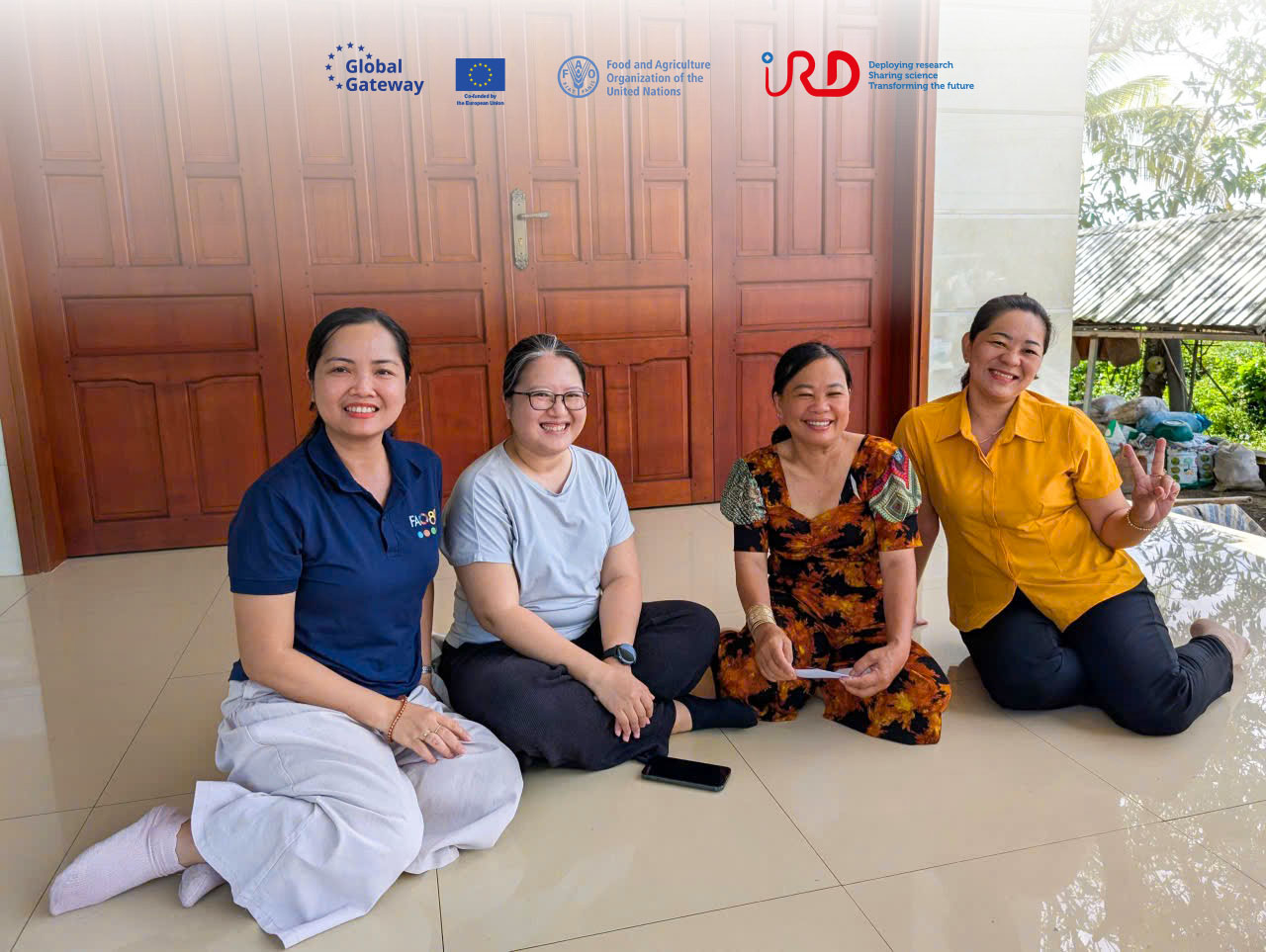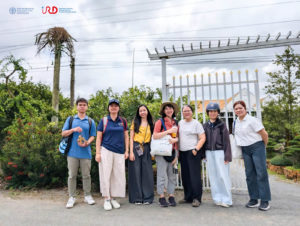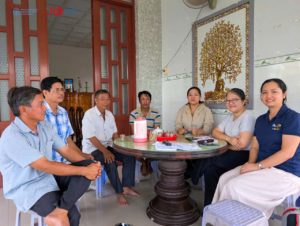
From 25 to 27 September 2025, the STAR-FARM project conducted a field mission to Đồng Tháp and An Giang provinces (previously known as Kiên Giang). This field mission was part of Activity 2.1.2: Identify and address the specific constraints of women and youth in adopting innovations.

The mission aimed to collect research data through in-depth interviews with farmers and local officials to better understand current trends in agricultural transformation in the target localities, along with the associated opportunities and challenges.
The mission involved the research team from IRD and several on-site research collaborators. It also welcomed two representatives from FAO in Vietnam: Ms. Nguyễn Thị Thanh Vân, National Coordinator of the STAR-FARM Project, and Ms. Võ Đoàn Anh Thư, Field Coordinator of the STAR-FARM Project.
The team conducted a number of in-depth interviews with farmers and local officials in each field site with specific themes. In Mỹ Quý Commune (Đồng Tháp), discussions focused on the rice cropping system under the project on one million hectares of high-quality and low-carbon (HQLC) rice production. In Đông Thái Commune (An Giang), interviews explored the double-cropping rice system and rice–shrimp cultivation system.


A rice-shrimp farmer presents shrimp from his pond
The local farmers who participated in the study came from diverse backgrounds, including differences in gender, age, ethnicity, and farm size. Through the in-depth interviews, the research team aimed to explore farmers’ perspectives on innovations in production, identify future directions along with related opportunities and challenges, and analyze how different factors like gender, ethnicity, and age influence their roles, decision-making processes, and implementation of innovations.

In addition, the team met with local officials from the two communes to gain insights into the local context, relevant policies, and the perspectives of the authorities.

The research team works with the local authorities
Next Steps
Building on the valuable data gathered from the field mission, the research team will now analyze the findings, refine the study’s focus, and finalize the research questions to guide the next phase.
A key goal of this next phase is to develop a set of social justice indicators that are both relevant to the STAR-FARM project sites and adaptable to the broader agricultural context of the Mekong Delta.
In addition, the team will apply visual storytelling methods to deepen exploration of topics such as gender inequality and the adoption of agricultural innovations. These methods will include photovoice, co-producing knowledge through video, and documentary filmmaking.
The final phase of the process will culminate in a series of workshops designed to share research findings with local stakeholders and communities. These workshops will also serve as platforms to revisit key themes, encourage collaborative dialogue, and foster collective thinking toward inclusive and sustainable agricultural development in the region.

About STAR-FARM
The STAR-FARM project (Smart Agro-ecological Transformation of Farming Systems towards Resilience and Sustainability in the Middle and Coastal Zones of the Viet Nam Mekong Delta) aims to facilitate the agroecological transformation of agri-food farming systems in Viet Nam’s Mekong Delta. It seeks to enhance their resilience to climate change, environmental degradation, and other external shocks, while promoting long-term sustainability and social equity to help secure the livelihoods of local farmers.





